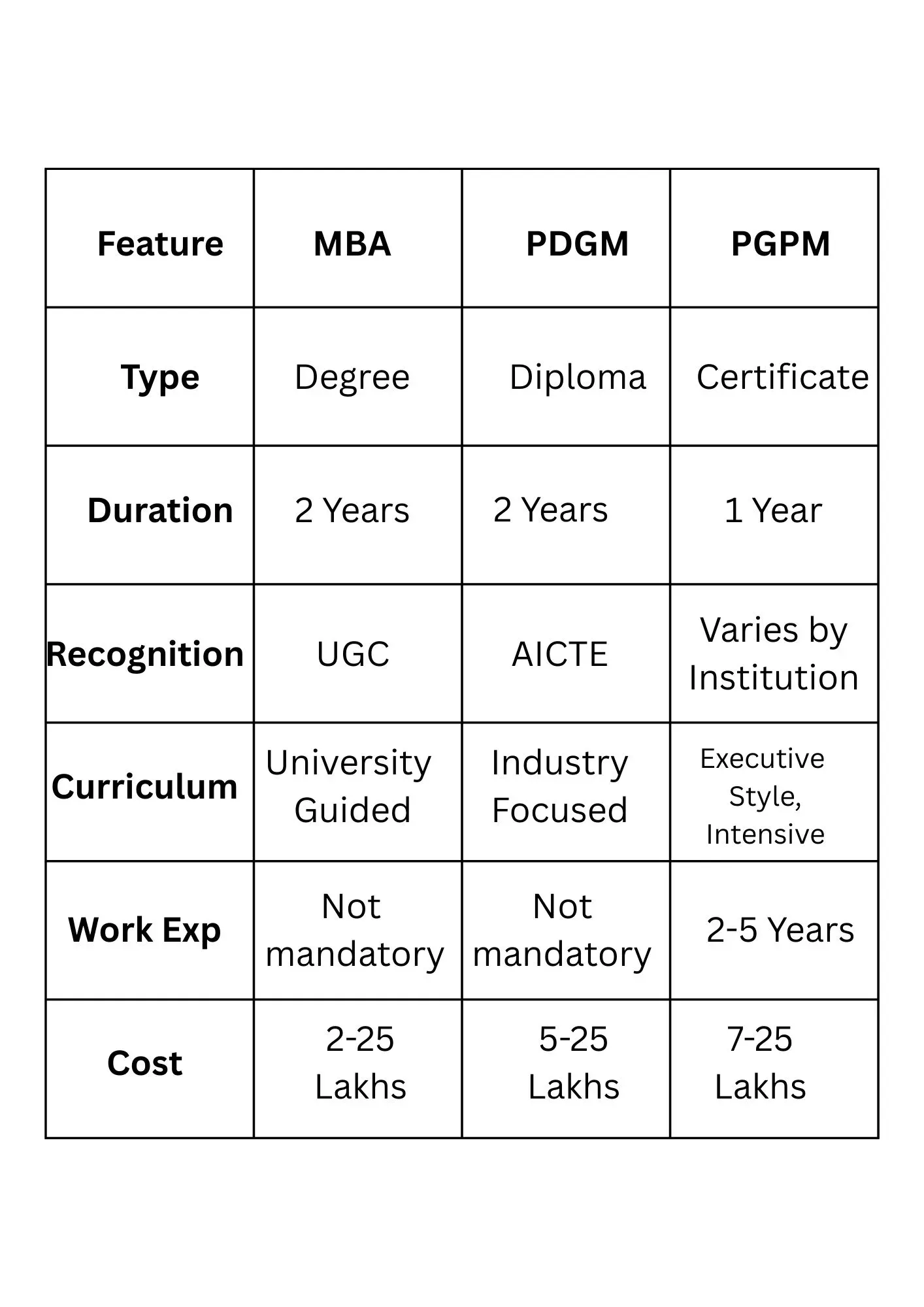Posted 4 months ago

If you are planning a career in management, you must have come across the terms MBA, PGDM, and PGPM. While all three are postgraduate programs in management, they differ in structure, recognition, and career outcomes. Choosing the right one can make a significant impact on your career trajectory.
In this blog, we’ll explore the key differences between MBA vs PGDM vs PGPM, along with their pros, cons, costs, and who they are best suited for.
MBA (Master of Business Administration) is a degree program offered by universities and colleges affiliated by UGC (University Grants Commission). It usually spans 2 years and covers core subjects like Marketing, Finance, Operations, and HR.
Offered by: Universities and colleges affiliated with universities (e.g., FMS Delhi, IIMs offering MBA degrees)
Recognition: Globally recognized degree
Curriculum: More theoretical, follows university guidelines
PGDM (Post Graduate Diploma in Management) is a diploma program offered by autonomous institutes approved by AICTE (All India Council for Technical Education). The curriculum is more industry-focused and flexible.
Offered by: Autonomous B-schools (e.g., IIMs, XLRI, SPJIMR)
Recognition: Equivalent to MBA if the institute is AIU-recognized
Curriculum: Industry-aligned, updated frequently
PGPM (Post Graduate Program in Management) is typically a one-year, full-time management program designed for professionals with prior work experience. It is intensive, placement-oriented, and fast-tracks career growth.
Offered by: Private institutions and business schools (e.g., Great Lakes, MDI)
Recognition: Certificate program, not a degree or diploma
Curriculum: Focuses on leadership, practical skills, and experiential learning

Choose an MBA if you're a fresher looking for a recognized degree with a broad academic foundation.
Choose PGDM if you want a dynamic, industry-ready curriculum and are considering top private B-schools.
Choose PGPM if you already have work experience and want a fast-track to managerial roles.
There is no one-size-fits-all when it comes to management education. MBA, PGDM, and PGPM each have unique strengths. Your choice should depend on your career stage, goals, and learning preferences. Research the institutions, check accreditations, and always look for ROI—both in learning and career growth.

We have a team of over 12 experienced mentors with over 26+ years of collective experience available to guide you at a moment's notice.